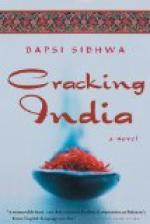|
This section contains 8,081 words (approx. 27 pages at 300 words per page) |

|
SOURCE: Didur, Jill. “Cracking the Nation: Gender, Minorities, and Agency in Bapsi Sidhwa's Cracking India.” ARIEL: A Review of International English Literature 29, no. 3 (July 1998): 43-64.
In the following essay, Didur examines the discourse of gender and national identity in Sidhwa's Cracking India in terms of feminist postcolonial theory.
Fictional and historical narratives that portray the rise of the modern nation-state often mobilize the figure of “Woman” in the “construction, reproduction, and transformation of ethnic/national categories” (Anthias 7). Nationalist discourse in South Asia is no exception to this practice. Here, “Woman” has been used as the alibi for colonial and nationalist interventions into the everyday lives of South Asians. Feminist critics have demonstrated that concern about women's status in colonial and postcolonial contexts often has less to do with changing the actual material conditions of their lives and more to do with patriarchal “struggles over community autonomy and the...
|
This section contains 8,081 words (approx. 27 pages at 300 words per page) |

|


